Animal Crossing Happy Home Designer Review: Curb Appeal Your Enthusiasm
Nintendo's latest creation is limited, specific, and as laid back as a video game can be.
This article first appeared on USgamer, a partner publication of VG247. Some content, such as this article, has been migrated to VG247 for posterity after USgamer's closure - but it has not been edited or further vetted by the VG247 team.
In a surprising and welcome plot twist, Nintendo's two big game titles for September (their opening salvo in 2015's manic fall release season) have taken a step away from the standard tentpole video game template and focused primarily on creativity and self-expression.
The first, Super Mario Maker, was a best of both worlds sort of affair: A video game about invention, channeling users' brainpower into creating video games. Sure, it has a few disappointing oversights, but by and large Super Mario Maker got everything right, from the creative process to the ability to share those creations.
Nintendo's second exercise in expression, however, is much harder to pin down. Animal Crossing: Happy Home Designer offers a vastly more limited scope than Super Mario Maker, and it imposes practically no goals or milestones on players. Simulation games like Animal Crossing have always challenged the traditional (or "hardcore," if you prefer) concept of video games, and Happy Home Designer takes this challenge to its ultimate extreme. It consists entirely of customizing interior layouts for various Animal Crossing characters. There is no right or wrong way of creating these home arrangements; as long as you meet each client's handful of mandates, you "win."
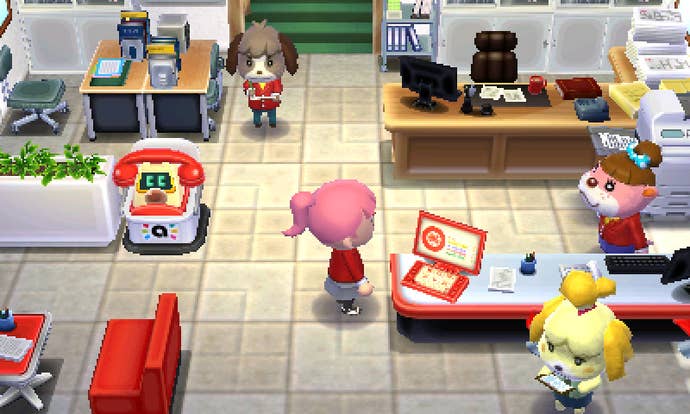
Those mandates, by the way, are in no way onerous or difficult. Each resident wants to have one to three specific pieces of furniture in their homes (all of which are given to you at the outset of the design process). As long as you take the time to include those items, you can't go wrong. Happy Home Designer is even more of a free-form sand box than a standard Animal Crossing entry, as you literally have no obligations or aspirations to shoot for beyond laying out home interiors with a handful of predetermined trinkets included.
On the flip side
Gamers tend to be goal-oriented, whether those objectives are provided by the game (beat the stage, survive this boss rush, defeat the other players) or result from personal aspirations (hit a certain level, shave a few seconds off this speed run, collect one of everything). Yet even self-imposed goals are tough to create with Happy Home Designer; every client loves the homes you create without reservation, even if your layout consists of nothing but rows of toilets or a room full of gurgling Gyroids. Unlike in vanilla Animal Crossing, you don't even have the Happy Home Academy rating your rooms and awarding points, because you are essentially the HHA.
In other words, your enjoyment of Happy Home Designer will come down entirely to the question of whether or not the process of creating custom living room arrangements for quirky animal people is your idea of a good time. Do you need a more rigidly defined objective? Do you need more tasks to handle than simply decorating rooms? Or are you content to play interior designer for a seemingly endless succession of creatures with extremely relaxed standards and expectations?
It helps to think of Happy Home Designer as the flip side of standard Animal Crossing. In the previous games, your ability to customize homes has largely been limited to your own place, with both space and furniture options hard-earned over weeks of regular play. Here, you have no home of your own and no economy to worry about. You don't need to hunt down and save up for furniture, either, as each character you design for automatically grants you access to new wares. It's basically a blank canvas for messing around with home design ideas, which you can treat as seriously (or not) as you prefer. The lack of HHA points means you're never railroaded into coming up with a "best" combination of furnishings, and you can completely disregard any notion of coordinate, good taste, or feng shui should you so desire.
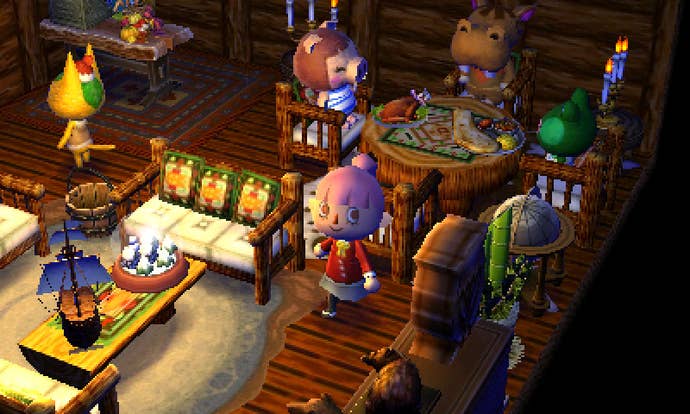
Land availability is no cause for concern, either, as you can set up each client anywhere in town you like, even on a previously occupied plot. Because you can't actually wander the village in your free time — you can visit the homes you've arranged, but only through a menu — you can stack residents as high as you like on a favorite chunk of land.
While the specificity of Happy Home Designer can feel limiting, it also works to the game's advantage. The design interface, which here strictly exists to allow you to arrange furniture, has been vastly improved over older Animal Crossing games. It's not hard to imagine the Animal Crossing team created this spinoff specifically as an exercise in reinventing the player interface for the main games, and I would be shocked if the improvements seen here don't make their way into whichever core AC title comes along next.
Happy Home Designer does fail at times to live up to its own modest aspirations. The furniture interface eventually becomes unwieldy, as even with dozens of menus and submenus you're left scrolling through pages of stuff in order to find what you're looking for. Some of the groupings and categorizations make little sense, too. Thankfully you have a few different search functions available to help you find things, but it's inelegant.
More frustratingly, the social and communication elements which serve as the entire franchise's foundation are largely absent here. You can upload your designs to Nintendo's servers to be viewed and rated by others, but this feels disconnected. Animal Crossing: Wild World for DS introduced the ability to interact directly in others' villages, and the return to an asynchronous style feels like a setback, a return to the relative primitiveness of the GameCube Animal Crossing. As much as series leads Katsuya Eguchi and Aya Kyogoku have talked up the importance of socialization in Animal Crossing in my interviews with them over the years, the minimal options available in Happy Home Designer disappoint.
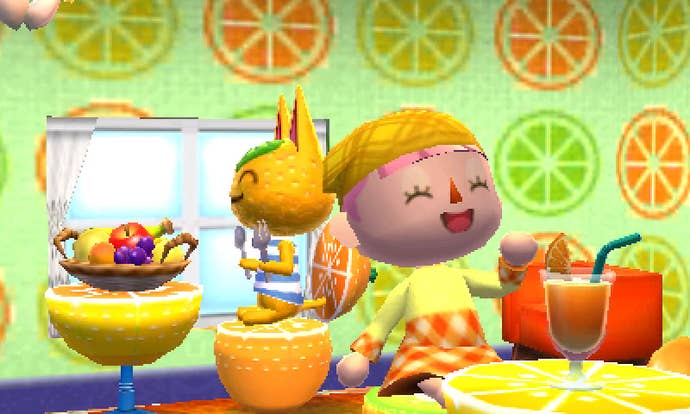
Everything's in the cards
Along with interface improvements, Happy Home Designer seems to put most of its creative eggs in the proverbial basket of Amiibo — specifically, Animal Crossing Amiibo cards. While they're not precisely required for play, Happy Home Designer goes out of its way to goad you into buying cards (which, naturally, appear to be sold out pretty much everywhere). The in-game Amiibo reader sits directly below your character's desk, where you stop after every home decorating appointment to save and unlock new features; its placement is no accident.
In terms of unlocked features, all Amiibo cards do is give you direct control over which animals appear in your game. Villagers show up in the plaza at random, but you can use a specific character's card to summon him or her immediately. Of course, cards are sold in random, blind packs as well, so even then it's something of a crap shoot. Only the "special" cards, which feature NPC characters who wouldn't normally show up as prospective clients, allow you to bring otherwise inaccessible characters into the game. These are packaged one per $6 card pack, and there are 20 special characters total, so the economics there aren't so optimal. It stills beats buying them piecemeal online, though — certain coveted cards (e.g. Isabelle) are going for $15-20 individually.
You can certainly live without Amiibo cards, but Happy Home Designer does feel incomplete without them. There also appears to be a bit of future-facing thought invested into the Animal Crossing Amiibo cards as well: Once you design a home for a "summoned" character, you can then save their home layout back to their card. This doesn't have much use in Happy Home Designer, unless for some reason you feel like swapping cards with a friend to check out one another's design choices, but it's hard to imagine it won't bear fruit in a future game. It seems a safe bet to assume that Animal Crossing for NX will allow you to use this data to determine the makeup of your town's population or perhaps create a custom sub-village of player-defined villagers similar to New Leaf's Street Pass town.
Nothing about the Amiibo card feature is inherently wrong, per se, but without knowing exactly the degree to which future games will incorporate them, it's hard to recommend making much of a commitment to them. Nintendo has a terrible habit of creating intriguing peripherals and then abandoning them — see also the Amiibo cards' predecessors, the eCard Reader for Game Boy Advance — rather than respecting its customers' investments, so proceed with caution.
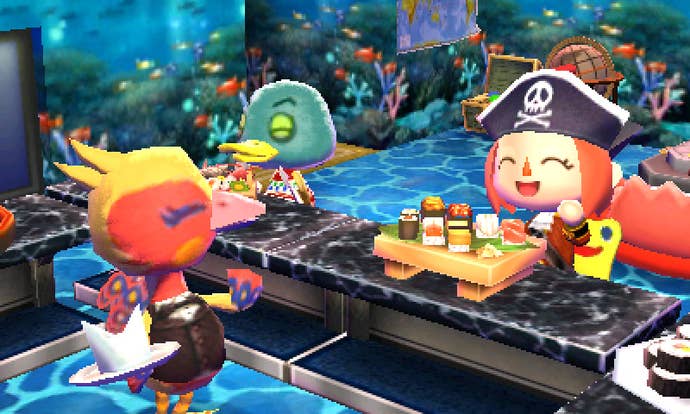
What's it good for?
Happy Home Designer is one of those games that defies a standard review and rating. It lacks any real structure or objectives or metrics; the closest thing to a critical path is a series of public works that you can work through in less than 10 hours. This is not a typical or traditional video game experience... and that's fine.
Many of Nintendo's most successful handheld games over the past decade (e.g. Nintendogs and Brain Age) involved unconventional concepts and mechanics, and they appealed to non-traditional gamers. Above all else, Happy Home Designer reads like an attempt to bring the Animal Crossing brand to an even more casual audience. That may sound like a tall order given the series' considerable appeal to casual players, but by removing hard goals and the rigidity of Animal Crossing's daily grind, Nintendo has managed to strip the series of its most video game-like mechanics. It's a non-threatening, non-judgmental video game that emphasizes personal expression (at least within the limited canvas of interior design) above all else. The packaging features the image of a home presented in cutaway, resembling nothing so much as a dollhouse, and I don't think that's accidental; it really is a virtual dollhouse, offering hundreds of opportunities to decorate and thousands of items to use for the task.
While I do find myself wishing Happy Home Designer had a little more ambition — for example, a more concrete world or better social features — I also find myself enjoying it. My perspective probably isn't typical, though. I'm married to someone who photographs home interiors for a living, which means she also arranges interiors, subscribes to design magazines, and freebases HGTV shows like House Hunters and Property Brothers. Happy Home Designer is essentially a distillation all these things, and it's been surprisingly satisfying to try my hand at something I normally only see from the outside. On top of that, it's nice to be able to revisit the Animal Crossing universe without dealing with the burden of expectations that normally goes along with it.
Just because I've found so much to like about Happy Home Designer doesn't mean everyone will, though. I wouldn't call the game an acquired taste, exactly, but it definitely requires adjusted expectations. It expands on a very small, very selective portion of the Animal Crossing experience, and its only metric for success is personal satisfaction. If that's enough to pull you in, then by all means have a look at Happy Home Designer.
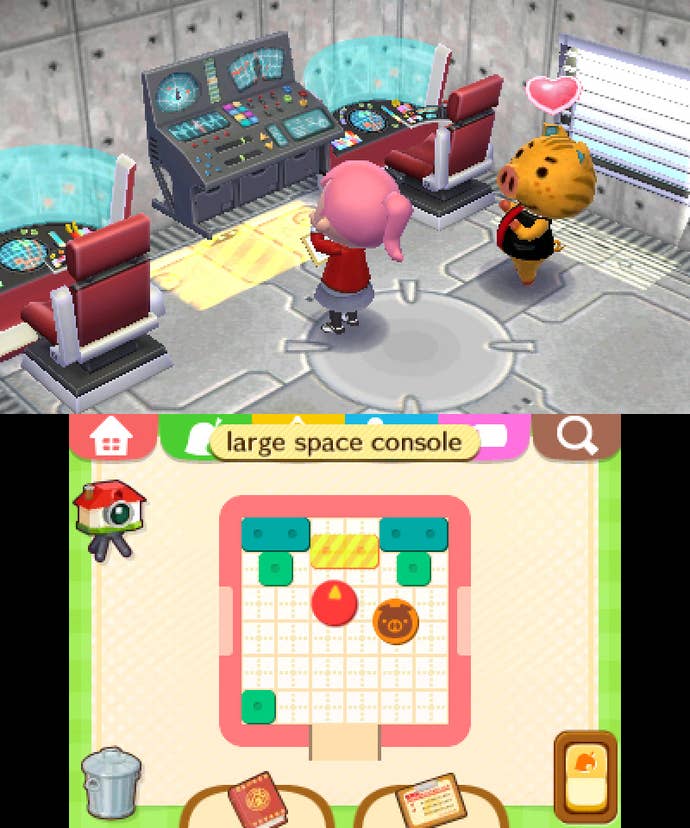
InterfaceWhile the sheer number of items to work with overwhelms the menu-driven interface, Happy Home Designer's touch screen controls absolutely need to make their way into mainstream Animal Crossing.
Lasting AppealPotentially endless — if you enjoy the process. If you need structure or objectives to motivate you, however, you're out of luck here.
SoundChill music, cacophonous Gyroids, warbling proto-speech. It's Animal Crossing, in other words.
VisualsThe simple style belies a remarkable amount of detail and variety within an enormous array of objects to bring into your home.
ConclusionHappy Home Designer may not be your typical video game, but that's precisely what Nintendo was aiming for. It's not about challenge or winning or competition, but rather about playing interior designer to a host of creatures. While it's mostly very good at what it does, the specifics of what it does won't appeal to most gamers, or even most Animal Crossing fans. Taken on its own terms, however, the only area in which Happy Home Designer falls short of its rather relaxed mission statement is in its social and sharing features, which feel rather anemic.

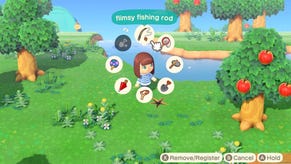
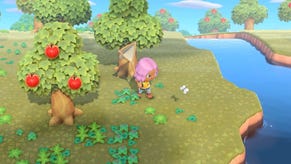
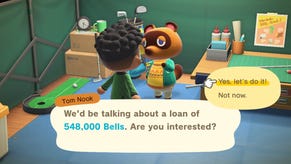
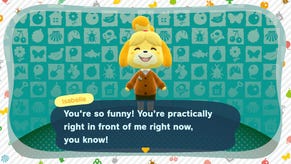
.jpg?width=291&height=164&fit=crop&quality=80&format=jpg&auto=webp)
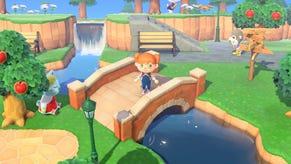
.jpg?width=291&height=164&fit=crop&quality=80&format=jpg&auto=webp)
.jpg?width=291&height=164&fit=crop&quality=80&format=jpg&auto=webp)